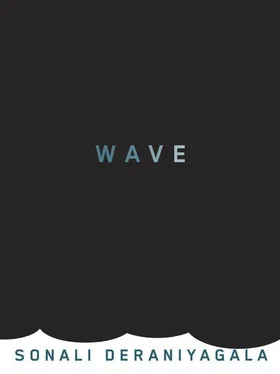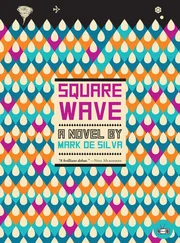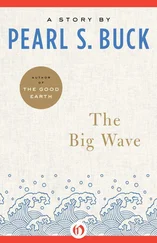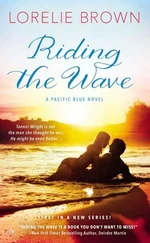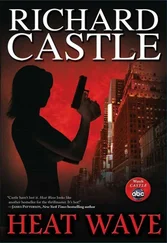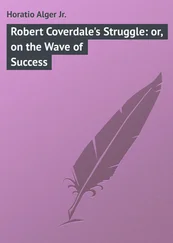A t first I ignored the crunching in my ears as I was waking up. Then I knew what it was. It was Vikram eating a pack of crisps. The slow crunch, crunch and the rustle of foil as he took a single crisp out of the pack, savored it with his eyes, lowered it into his mouth, and munched. And he repeated this until the last little smashed-up piece of crisp was gone. That was how he ate crisps. With unhurried, exaggerated actions to demonstrate just how much he relished them. His behavior was even more emphatic if I was around, to call attention to my cruelty, in not allowing him a daily ration of his favorite snack. But, Mum , other kids have crisps in their packed lunch every day. Yes, every single day, and I have to eat a stupid muesli bar. Yuk . The noises in my ears went on and on, and I lay there immobilized. Vikram’s revenge, I thought, getting back at me for all the times I deprived him of junk food. Then I could see him, sitting on a pillow on my bed, wearing his school clothes, gray trousers and bright red sweater. Leaning back on the headboard, his knees tucked up, holding a packet of Tesco Ready Salted Crisps in his left hand. He has his gray school socks on, the long ones with stripes on them, threadbare at the big toes. It was the after-school look. Mud stains on the trousers, a trace of dried-up snot below one nostril. Don’t drop crumbs on my pillow, I’d say. Don’t sit on my bed with your mucky school trousers on. Go wash your hands now, Vik.
COLOMBO, THE FIRST SIX MONTHS AFTER
I climbed out of the van that stopped by the gates of my aunt’s house. It was three a.m., the middle of the first night after the wave. I dusted crumbs off my clothes. Somewhere along the way the driver of the van had stopped to buy some biscuits. I told him I didn’t want Lemon Puffs, so he bought Ginger Nuts.
There was a crowd gathered at the house. They rushed out as I arrived. I saw my uncle Bala at the front. He lifted his hands to his head when he saw me, he opened his mouth as though he was about to howl. I quickly turned away, staggering past everyone and going upstairs. I needed to shower, there were stones in my hair.
I sat on the bed in my cousin Natasha’s room. I held on to the covers I’d pulled up to my chin. My relatives and friends asked me questions. I told them the jeep turned over in the water. I described the crushing in my chest. Didn’t I see Ma or Da or Steve or Vik or Malli? they kept asking. In the water? Any one of them? They couldn’t have survived, I heard myself insist. I was prodding myself to say this, to think this. I must prepare for when I know it’s true, I thought.
I asked for a hot drink. Someone brought tea. Someone suggested I take a sleeping pill. I refused the pill. How can I sleep? If I sleep now I will forget. I will forget what happened. I will wake believing everything is fine. I will reach for Steve, I will wait for my boys. Then I will remember. And that will be too awful. That I must not risk.
My aunt asked me for Steve’s parents’ telephone number. This unnerved me. I got the numbers right but muddled the order. I was troubled by this talk of calling Steve’s family. It meant something was wrong and I didn’t want to admit to that. Earlier when I looked in the bathroom mirror and saw shocking purple bruises streaking my face, I promptly looked away. This was needless proof, this was far too real. I wanted to stay dangling in a dream. Even though I knew I was not.
It’s possible Steve is alive. He has the boys. He will phone us. His voice will be tired. I could hear it, Hello, Sonal , barely audible. I didn’t reveal these thoughts to anyone.
The gluey dark snot coming out of my nose reeked of dog shit. My forehead was being drilled. The next morning my aunt called a doctor. A bit pointless, I thought, I will kill myself soon. The doctor dropped his bag as he walked into the room, and it fell open, and his instruments rattled onto the floor. He stuck them into my nose and my ears and my throat. A raging infection, in my sinuses, that filthy water. He gave me five types of antibiotics. I should inhale steam. It will clear the gunk. It will lessen the pain.
The stunned voices of friends and family floated about. An earthquake under the sea near Indonesia. The tectonic plates shifted. It’s the biggest natural disaster ever. A tsunami. Until now our killer had for me been nameless. This was the first time I’d ever heard the word. They talked numbers. A hundred thousand dead, two hundred thousand, a quarter of a million. I was unmoved. I cowered on that bed. It could be a million more for all I care, I thought.
They meant nothing, those words, tsunami, tidal wave. Something came for us. I didn’t know what it was then, and I still didn’t. How can something so unknown do this? How can my family be dead? We were in our hotel room?
I can’t live without them. I can’t. Can’t.
Why didn’t I die? Why did I cling to that branch?
Pieces of me hovered in a murky netherworld, timeless day after timeless day.
I don’t remember when they told me. Three, four, five days later. I had limped downstairs. There were thorns deep in my feet, and they were now rising to the surface, almost piercing the skin when my feet touched the floor.
“They found Ma and Da today,” my brother Rajiv said softly. I sat down. The chair was broken and I tipped backwards and nearly fell off. Someone rushed to give me another chair. I looked at Rajiv. “They found Ma and Da,” he said again. I knew what he meant. He meant they’d found their bodies.
“And I think also Vik,” he said. “Can you remember what he was wearing? Was it a green T-shirt and black and white shorts, checked ones?” I nodded. He is telling me that Vik is dead. I stared at Rajiv and my aunt and my uncle and Natasha, who were in the room. He is telling me that Vik is dead. I stared, wordless. That green T-shirt, it had a tiger on it, we got it in India, it was the day we saw a wild tiger for the first time. He is telling me that Vik is dead? I didn’t scream or wail. I didn’t faint. And I didn’t think of asking for them to keep that green T-shirt.
I’ll wait until all the bodies are found, I told myself. Then I will kill myself.
My brother organized a massive search for Malli. Malli just might be alive. He scoured the country with friends and family. They went to every hospital, every camp for survivors, they appealed in the newspapers and on TV, they offered rewards. Malli’s photo looked out from walls and shop windows and the back of trishaws. I pretended to ignore Rajiv’s efforts. I told myself they were in vain. I must not hope. Not again, not now.
How can I accept that Steve and Mal just vanished? That there will never be any proof? I kept asking myself this. How can I tolerate something so absurd? But then, all that was reasonable in this world had been blasted by that wave.
They are my world. How do I make them dead? My mind toppled.
In a stupor I began to teach myself the impossible. I had to learn it even by rote. We will not fly back to London. The boys will not be at school on Tuesday. Steve will not call me from work to ask if I took them in on time. Vik will not play tag outside his classroom again. Malli will not skip in a circle with some little girls. The Gruffalo. Malli will not cuddle me in bed and read about the Gruffalo, with that poisonous wart at the end of its nose. Vik will not be excited by whoever scored for Liverpool. They will not peep into the oven to check if my apple crumble has cooked. My chant went on.
But I could not absorb any of it.
I’d put pizzas in the freezer for the boys because our flight got into Heathrow late. The milkman will deliver our usual the next morning, I’d left a note. We are going to a party at Anita’s on New Year’s Eve. It was Christmas. Vik and Malli were singing their favorite version of “Jingle Bells,” squealing out the line “Uncle Billy lost his willy on the motorway.” Not long ago they were giddy with Halloween. Their leftover bounty of sweeties is still in an orange bucket in the kitchen. I can feel their gloved fingers twining mine. It’s fireworks night, I can smell damp November on their cheeks.
Читать дальше
